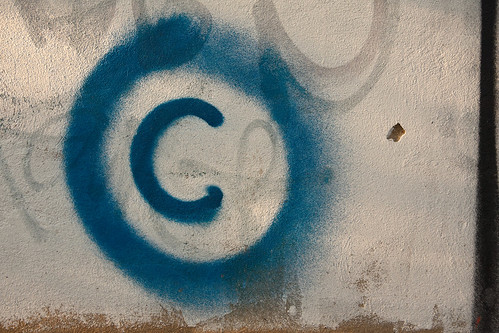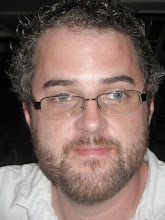Wk1 Copyright Issues - software piracy
Saturday, March 5, 2011
In computer software, a creation can be protected by both copyright (writing, visuals) and patent (function, how it works). Because I often work directly for software companies — including Apple, Adobe, and many others— I am not only ethically but contractually obligated to maintain legal licenses for ALL software that I use. That means when showing a graphic layout in a demo, every little font and image must be legit, no trial versions or copies.
For the giant corporate software or the little plug-in developers, I have to respect that the purchase of their products is what gets me paid, but more so that the public showing of any software must have “clean” supporting applications or they may be seen as guilty by association.
Today, my friend was looking to buy the latest version of a 3D rendering software. One seat typically costs thousands of dollars, so he was investigating any less expensive solutions. A quick check of eBay revealed no offers available, but Craigslist had a posting for just what he wanted. The poster replied with the following caveats:
1. •This works just like the original, just not as expensive (I bought mine from a guy online before I got the original)
2. •Yes, you will have a working serial number, just follow the instructions which will be included with the disc
3. •please DO NOT ask me if this is the original or a copy...the price alone should answer that (google the retail price if you don't know how much it goes for)
4. •please DO NOT ask me about legality or if you can register it or upgrade it...if those features mean more to you than a fair price then just purchase it from a retail store.
5. •You can ask me if I provide a great working FULL VERSION product at great price, and the answer to that is YES !
Worth it for under a hundred bucks? My friend was understandably hesitant and did NOT purchase from this obviously pirated source. His concern was that in a professional situation, any files created from this source might not be fully functioning or readable, they may “time out” or require a serial number confirmation for log in. He decided that anything that may potentially jeopardize a client or project is not worth the risk.
My Comments: Enjoyed the post from craigslist. I think I might just go batty if I were in your shoes. We all have an ethical obligation and I do my best to stay within those simply defined boundaries I have self-imposed. However, if dealing with nuances of law were my daily gig, well like I said...
It is refreshing to see that you do not and cannot differentiate for the "little guy." Most of us do not take the time to even consider this aspect of copyright and purchase.










